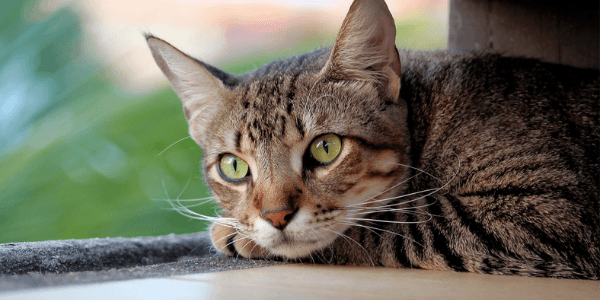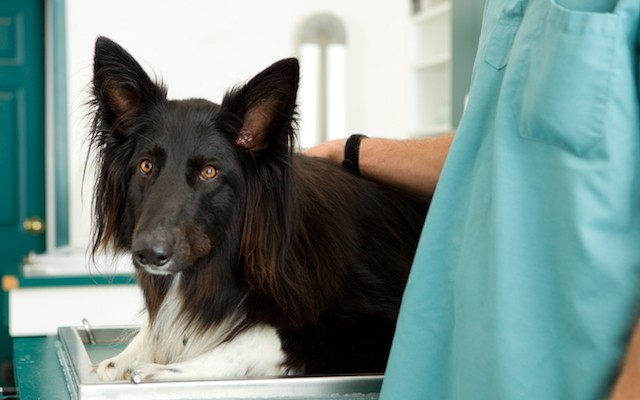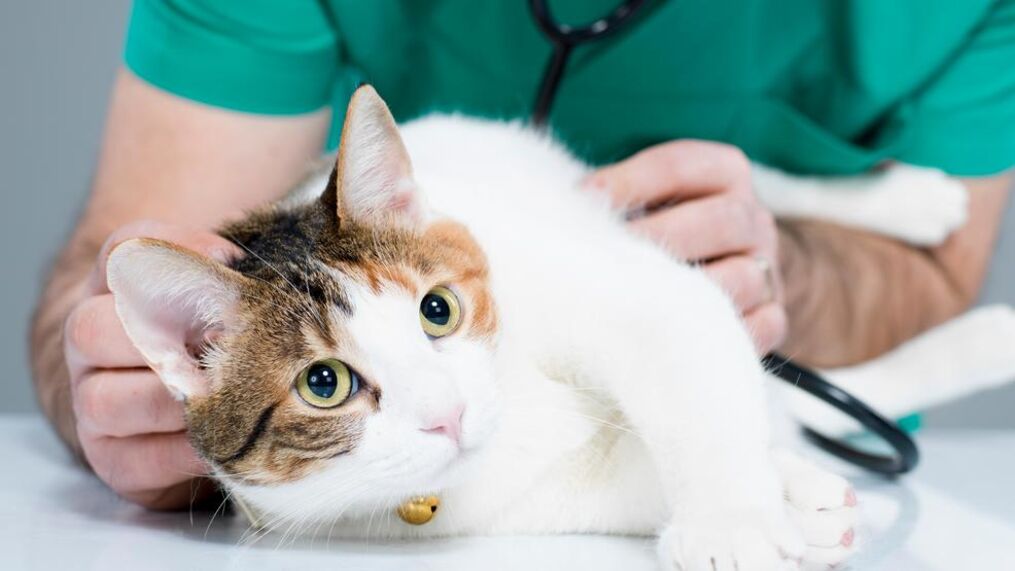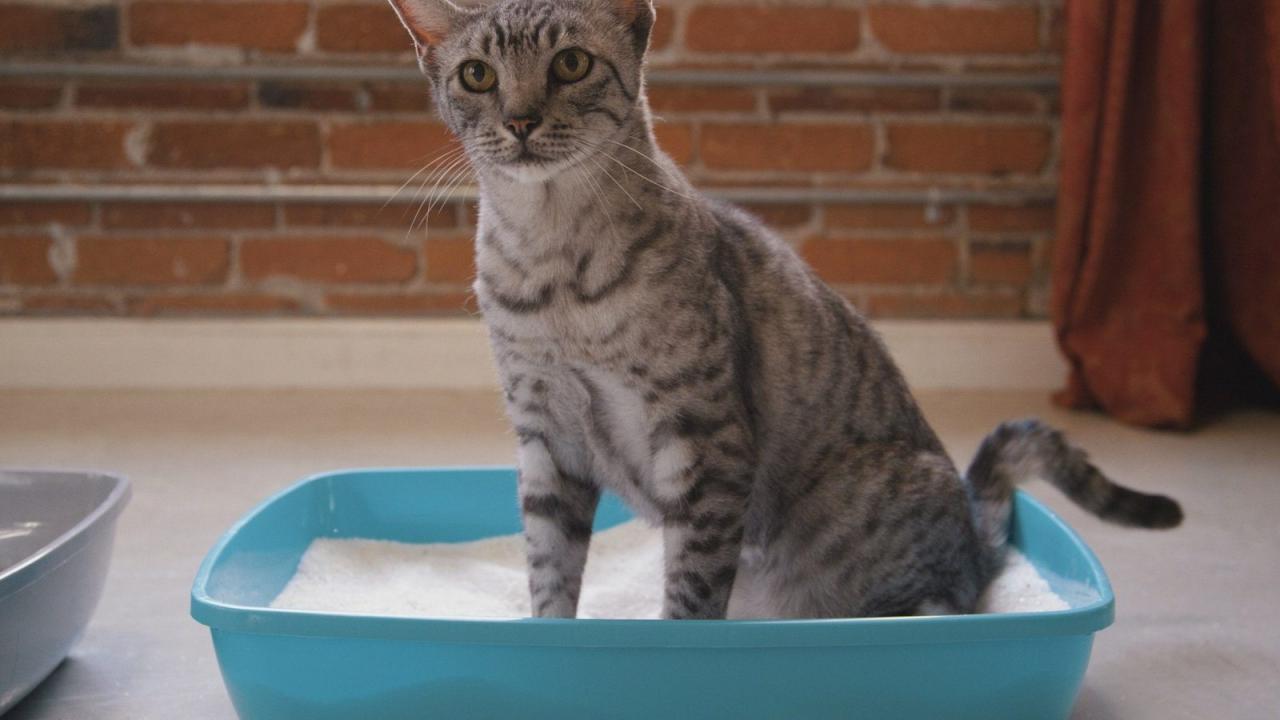Cat bodies function very differently from human bodies. They may not be able to eat as much food and in most cases, they may not be able to eat the kind of food that humans tend to eat. They may be omnivores in nature, but giving them meat that is spiced up may cause them to shed so much more than usual. They will also not appreciate you giving them grass every single day. They only need grass for their digestion and if they are fed that like food, they will eventually get sick.
Much like food, the diseases or allergies that cats acquire may sound similar to what humans might experience, but in reality, they are quite different from what we experience.
Can Cats Die from Urinary Infections?

The simple answer to the above question is yes. A cat may likely die from a urinary infection. These are not as common but they happen, nonetheless. If a cat happens to acquire this disease, it will die a slow and painful death if it has not been cared for the right way and treated almost immediately. You can not be lazy or neglectful when it comes to this situation.
In many cases of a urinary infection in cats, stress is known to be one of the main reasons. It is very common for cats who live a stressful life to develop a urinary infection. There are some symptoms when it comes to these infections.
Symptoms of urinary infection in cats

For starters, if your cat is seen going to the litter box too often, it may be a sign that the cat has developed a urinary infection in her tract. Urinary infections will make them want to get rid of whatever is going on in their area and they might think that peeing often might help them with that.
There are also chances of the cat beginning to relieve itself or pee in areas that are not the litter box. This is a common occurrence with cats who develop this sort of disease. They might start to believe that the litter box is what is causing them pain and not the actual infection and they might not want to go anywhere near the litter box.
There is also a very high chance that people who own cats might start to see blood in their urine. If you are paying close attention and you are inspecting the litter box, there is a very high possibility that you will see blood in the litter when your cat is suffering from this kind of infection.
The whole thing can be extremely painful for the cat and taking it to the vet as soon as possible can be the difference between life and death for the cat.
In adult cats, there may be some cases in which the stones or the cells from the cat litter might find their way to the cat’s urethra. When this happens, the cat might try to get rid of the stone to the best of her abilities.
She may try to strain harder in the litter box to get the stones out and cat owners might mistake this for plain and simple constipation when that is the farthest from what is actually happening inside of the cat’s body.
When the urethra of a cat is blocked, there is a possibility that the cat might expose a large and painful bladder that may be palpitating.
Only 5% of cats will make it very evident that they are experiencing an infection, in other cases, it may not be as obvious.
How to diagnose urinary infection
In a situation like this, an x-ray will be able to provide you with the most accurate diagnosis. The vet or the special clinic will deal with most of this. Any blood imbalance that occurs within the cat’s body should be dealt with as soon as possible because it will start to experience electrolyte imbalances and this may be extremely dehydrating for your cat. In dire cases, a situation like this is extremely life-threatening and needs to be dealt with on an immediate basis. If you prolong the treatment, your cat will get worse and worse and it will die.
Treatment of urinary infection

There are different kinds of treatments for different cases.
If a cat does not necessarily have an infection, but there are stones present in the tract, the cat should be given some sort of allergy and pain medication to get rid of the pain as soon as possible and relieve your cat from any forthcoming agony that it might face.
If the stones are much larger in size, the cat may only be able to get rid of them if it has surgery. Surgical removal of the stones becomes important if it has been too long and the cat still is not able to pass the stones.
If there is any obstruction in the urinary tract then you may have to use a catheter to allow urine to pass and along with it, you may also be able to remove the stones. The urine can be removed with the help of a needle. All of this has to be done under the influence of anesthesia which has to be given to the cat, this will make sure that the cat does not feel any pain while it is undergoing any surgical process.
If this keeps recurring, your vet might suggest a surgery by the name of perineal urethrostomy which may cause the urethra of the cat to widen and decrease any sort of obstruction that might occur. However, the infection may not entirely be gone and the inflammation might retain. In some cases, this may become a lifelong problem, but if you are willing to take up the responsibility, you may be able to give the cat the care that it needs to live a long and decent life.
Conclusion
These infections are no joke, the most important step is to consult a proper vet and follow their guidelines vigilantly.
